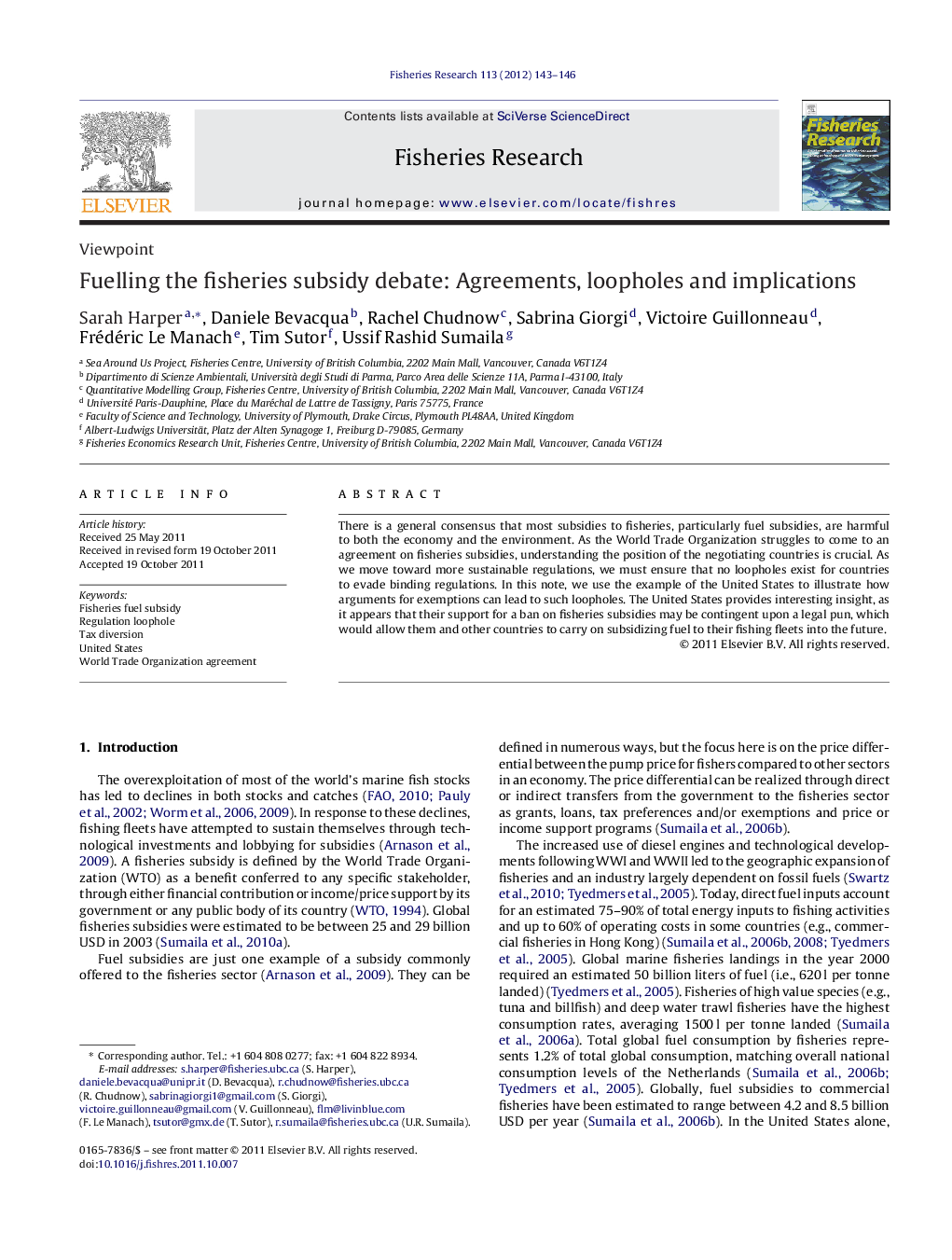| کد مقاله | کد نشریه | سال انتشار | مقاله انگلیسی | نسخه تمام متن |
|---|---|---|---|---|
| 4543519 | 1327151 | 2012 | 4 صفحه PDF | دانلود رایگان |

There is a general consensus that most subsidies to fisheries, particularly fuel subsidies, are harmful to both the economy and the environment. As the World Trade Organization struggles to come to an agreement on fisheries subsidies, understanding the position of the negotiating countries is crucial. As we move toward more sustainable regulations, we must ensure that no loopholes exist for countries to evade binding regulations. In this note, we use the example of the United States to illustrate how arguments for exemptions can lead to such loopholes. The United States provides interesting insight, as it appears that their support for a ban on fisheries subsidies may be contingent upon a legal pun, which would allow them and other countries to carry on subsidizing fuel to their fishing fleets into the future.
► Fisheries fuel subsidies are known to be economically and environmentally harmful.
► World Trade Organization agreement on fisheries subsidies are now under negotiation.
► US position to ban harmful subsidies is at odds with fuel tax exemptions to fishers.
► Loopholes in draft agreement may highly diminish its strength.
► Explicitly defining subsidies in WTO agreements is crucial to avoiding such loopholes.
Journal: Fisheries Research - Volume 113, Issue 1, January 2012, Pages 143–146